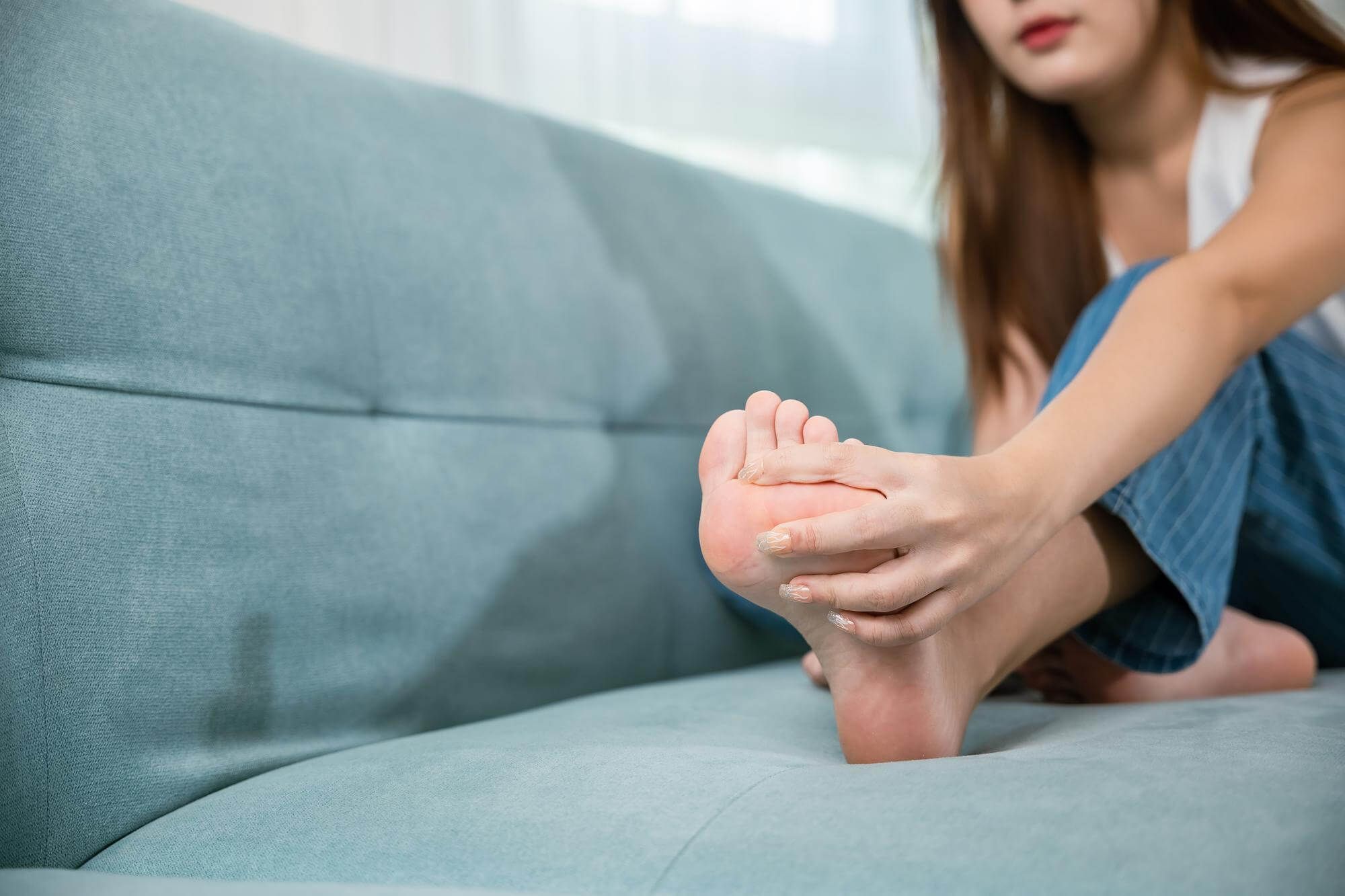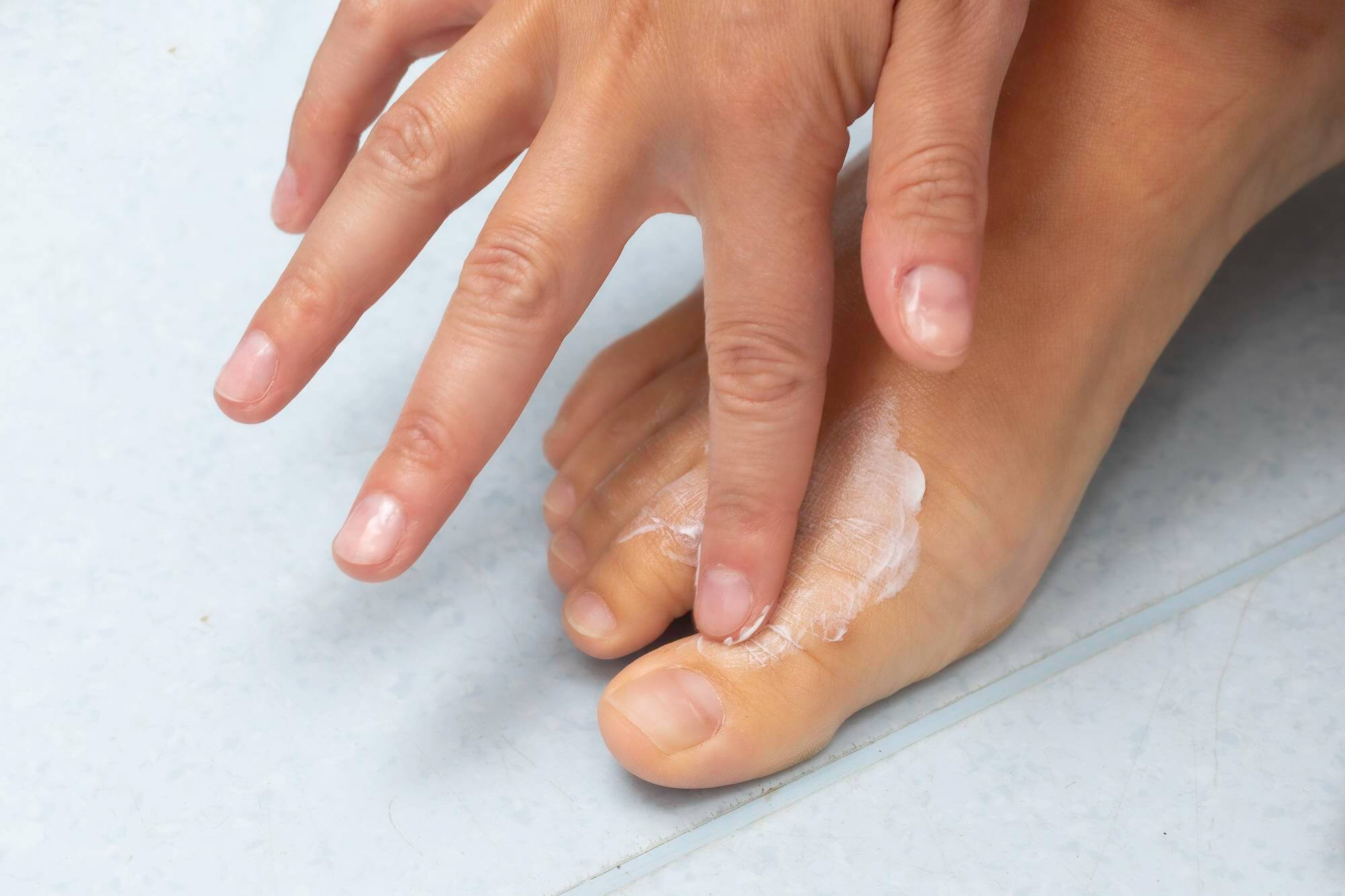Eczema on the feet: common symptoms and effective treatments


Viktor Levchenko
What is foot eczema?
Eczema on the feet is an inflammatory skin condition that causes itching, redness, and the formation of small blisters filled with fluid. This condition can occur on any part of the foot, including the feet, heels, toes and knees. Eczema can be the result of an allergic reaction or other factors.
Symptoms of eczema on the feet
Symptoms of eczema can vary, depending on the individual's body and the stage of the disease.
The first manifestations of eczema on the foot are often itching and redness of the skin. Blisters may then form, which burst, leaving behind a soggy surface. With a prolonged course, crusts and peeling may appear on the skin.
Causes and risk factors

Eczema on the feet can be caused by various factors, including allergies to food, household chemicals or textiles. There are also genetic predispositions to develop this condition.
Diagnosis of foot eczema
Diagnosis of eczema usually involves a skin examination, a history, and possibly allergy tests. Additional tests may be performed if necessary.
Treatment of foot eczema

Eczema on the legs requires a comprehensive approach to treatment, including medication therapy and lifestyle changes.
Nonhormonal treatments for eczema include creams and ointments that contain moisturizing and soothing ingredients. Examples include Emolium, Locobase Ripa.
In cases of severe eczema, your doctor may prescribe hormonal medications such as glucocorticosteroids (such as Hydrocortisone or Betamethasone). These ointments have anti-inflammatory effects.
Some folk remedies may also be effective in reducing the symptoms of eczema, but their use should be discussed with your doctor. They may include the use of decoctions and tinctures of medicinal plants.
Skin care recommendations for eczema on the feet
Skin care for eczema on the feet includes regular hydration of the skin, avoiding contact with allergens and household chemicals, and wearing natural cotton and shoes made from natural materials.
In conclusion, eczema on the legs is a complex disease that requires a comprehensive approach to treatment. It is necessary to follow all the doctor's recommendations, as well as change your lifestyle to minimize contact with potential allergens. This way, you can effectively fight this disease and keep your health on track.
Related Materials
New materials
Popular Articles
We recommend reading
Contact us in the Contact Us section to ask questions, offer ideas, or for more information about our allergy resource.
Our articles are your trusted source of allergy knowledge. Learn how to make life with allergic reactions easier on our specialized portal.
©
Lechenie-Allergii.com. All rights reserved.
© Lechenie-Allergii.com. All rights reserved.
The information on this site is for informational purposes only and is not a substitute for professional medical advice. We recommend consulting with qualified medical professionals for accurate information and advice.
 English
English  Українська
Українська  Русский
Русский 









